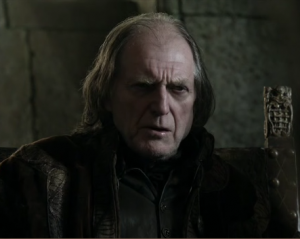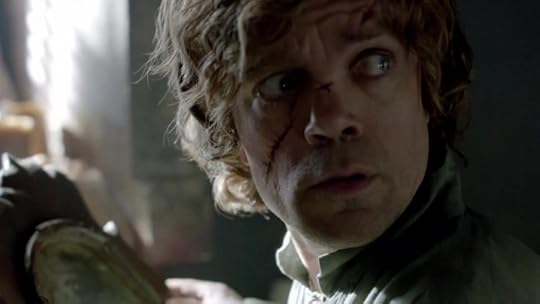Dan Harris's Blog, page 8
June 17, 2013
Dear Reader…
Have you read Ascension Point? You have!? That’s great! I wrote you this letter…
——————————————————–
Dear Reader:
Thank you so much for buying a copy of my debut novel, Ascension Point. I hope you enjoyed it. If you were here, I’d high-five you, and then we’d have a beer. Maybe a snack. I’ve got some nice cheese in the fridge.
I’m writing to you today to ask for your help in addressing a shocking issue that’s afflicting one in every one science fiction authors in my immediate area: Ascension Point‘s chronic shortage of Amazon.com customer reviews.
As you may or may not be aware, Amazon.com reviews have comparable value to these items:
Uncut diamonds
Gold dust
Enriched plutonium
While Ascension Point has sold well, and received a small number of (very positive) reviews, my in-depth calculations regarding its sale-to-customer-review ratio have determined that this many readers go on to leave a review:
11 / 500 = HARDLY ANY
This debilitating shortage of customer reviews is the leading cause of at least one of the following conditions:
Global warming
The rise of militant fundamentalism
Teen obesity
Me not being able to run a BookBub promotion
But it’s not too late. With your help, we can address at least one of these issues. (Probably the last one.) It only takes a minute, and costs you ZERO DOLLARS.
That’s right.
ZERO DOLLARS.
(Although while you’re there, if you decided to buy a copy of Venus Rising as well, that’d be cool.)
Here are some examples of the reviews that could go a long way to addressing this terrible problem.
‘Ascension Point was a super-fun read. Dan Harris is clearly the new Joe Haldeman, except with less scientific rigour or Vietnam War allegory.’ *****
Or:
‘Even though I bought Ascension Point in ebook format, I made the effort to find a way to print it out in its entirety, just so I could shred it and use it as bedding for my seventeen diarrhea-afflicted guinea pigs. That’s how bad it is. But then the author asked me to leave a review, so here I am.’ *
Or even:
‘Meh.’ ***
You see how easy it is? Even one word, and a pseudo-random selection of a value from one to five counts as a review!
That’s all I ask. Help me help you help me, and together we can guarantee that I’ll write another post exactly like this next year. You can leave a review here.
Thank you.
Dan Harris


You Cured the Patient but the Patient Died
“Look at Amazon’s costs in taking a manuscript from an indie author (or a publisher) and putting it up for sale. Amazon receives an ebook file together with metadata (book description, author, key words, etc.), has someone in India look at the result for 10 minutes, then lists the book for sale. Amazon’s customers decide whether the book sells well or not. Computer algorithms watch sales, generate sales ranks and promote books that look promising via emails and more prominent placement on the website..
Compare the costs of Amazon’s model with the costs involved for a traditional publisher with acquisition editors, internal meetings to decide whether to take the book and how much to pay, contract negotiation (minimal, but still a time cost), internal editing, cover design, meetings with sales and marketing, printing costs, sales pitches to bookstore buyers, shipping costs for physical books, etc., etc. For major publishers, all the people are receiving Manhattan salaries and sitting in offices rented at Manhattan prices.”
From You Cured the Patient but the Patient Died at The Passive Voice. Truer words, etc.


June 15, 2013
Kris Rusch on ‘The Stages of an Indie Writer’
This one’s for writers, and anyone interested in the publishing industry.
Over at The Business Rush Kris has written a great essay on the different stages she’s seen traditionally published authors go through on their journey from ‘how it used to be’ to the brave new world of indie publishing. It’s fascinating stuff, though I can’t personally comment on the accuracy: I jumped straight in at stage twelve!
“The emotions are actually predictable, although we all go through these stages at our own speed, and in our own ways. Some people get stuck in one of the stages and might never emerge from it. Others blow through a few of the stages and wonder why friends can’t do the same. We all find something that stops us for a while, though, and we all have to find our own way through them….
8. Fear (Indie Publishing Version 1)
They don’t know how to indie publish anything. Designing a book is hard, finding a cover is hard, uploading to e-book services is hard. Or, at least, it all looks hard.
Then the writer tries a few things. Yeah, there’s a learning curve, but she has had learning curves in the past. That’s what she did with her writing. She learned. She’s done this before. She can do it again.
She decides to try.”


Iain Banks: The Final Interview
Over at The Guardian today. Includes what I’m sure will go down as one of his most famous quotes:
“I can understand that people want to feel special and important and so on, but that self-obsession seems a bit pathetic somehow. Not being able to accept that you’re just this collection of cells, intelligent to whatever degree, capable of feeling emotion to whatever degree, for a limited amount of time and so on, on this tiny little rock orbiting this not particularly important sun in one of just 400m galaxies, and whatever other levels of reality there might be via something like brane-theory [of multiple dimensions] … really, it’s not about you. It’s what religion does with this drive for acknowledgement of self-importance that really gets up my nose. ‘Yeah, yeah, your individual consciousness is so important to the universe that it must be preserved at all costs’ – oh, please. Do try to get a grip of something other than your self-obsession. How Californian. The idea that at all costs, no matter what, it always has to be all about you. Well, I think not.”
Perfect. ‘How Californian’ indeed. There’s also a great quote that’ll get the more militant indie author/publishers’ backs up:
“I think my poetry’s great but then I would, wouldn’t I? But whether any respectable publisher will think so, that’s another matter. I’ll self-publish if I have to; sometimes I have no shame.”
Ha ha. And finally:
“…it wasn’t that Iain was still Iain, despite an illness that was as unexpected as it was tragic. It’s that in his last days he was more witty, more impassioned, more imaginative, more kindly, more caustic and even cleverer, as if concentrating and distilling the best of himself into the small time he had left. It was humbling to have been there.”
(Thanks to Steve Hall for the link.)


June 14, 2013
‘Elysium’ Will Be The SF Movie of 2013
Dystopian future riven by inequality? Check.
Dazzling high-tech? Check.
Explosions? Check.
AI police robots? Check.
Directed by Neill Blomkamp (District 9) and starring Matt Damon and Jodie Foster, there’s quality behind and in front of the camera. I can’t wait.


June 10, 2013
’11 Rules of Good Writing That Iain M. Banks Left as His Legacy’ at io9
I expect to see many wonderful tributes to Banks over the coming days, and it makes me happy that one of the first focuses on how truly innovative he was as a writer of SF.
1. There are no good guys
In Iain M. Banks‘ science fiction series about the Culture, there are no heroes who aren’t tarnished by morally ambiguous deeds. Even the good-intentioned people of Special Circumstances, whose goal is to export social democracy everywhere, are basically assassins… Having heroes whose intentions are mixed, rather than motivated by pure good, makes them more realistic as people. It also reminds the reader that one person’s “good” is another person’s “end of the world.”
Full list here.


June 9, 2013
Goodbye, Iain Banks
Iain Banks died today, just two months after announcing that he had terminal gall bladder cancer. The Guardian has a detailed obituary, but I prefer Neil Gaiman’s more personal post.
He will be missed.


June 7, 2013
HULK VS. SPOILERS AND THE 4 LEVELS OF HOW WE CONSUME ART
 Reblogged from FILM CRIT HULK! HULK BLOG!:
Reblogged from FILM CRIT HULK! HULK BLOG!:

A BIG THING HAPPENED ON TV AND IT GOT HULK THINKING ABOUT SPOILERS AND THE 4 WAYS THAT PEOPLE LIKE TO CONSUME ART.
THIS ONE'S A GOOD ONE :)
I AGREE WITH FILM CRIT HULK. THIS ONE IS A GOOD ONE.
June 6, 2013
Authorial Prerogative and the Truncation of Story Arcs
Spoilers for Season 2, Episode 9 of Game of Thrones below the jump.
Or in other words, who the **** does G. R. R. Martin think he is?
So. On Sunday night TV-watching but non-book-reading Game of Thrones fans discovered what their literary brethren had known since the year 2000 when A Storm of Swords came out. Namely, that twinkly-eyed hero Robb Stark, his mother Cat and pregnant wife Talisa don’t make it to the end of the story. Instead they’re shockingly, brutally butchered at the wedding of Cat’s brother Edmure to one of the daughters of Walder Frey.

The face of evil.
(Robb had promised Frey he’d be the one at the altar. Married Talisa instead. Thought all was forgiven. It wasn’t.)
Following the episode’s stunning conclusion, the interwebs were overwhelmed by a tsunami of outrage, indignation and even grief–which has always seemed to me like a strange reaction to the death of a fictional character, but each to their own. Twitter being Twitter, an account was quickly created to capture the best reactions: https://twitter.com/RedWeddingTears. They’re mostly fantastic.
GAME OF THRONES SEASON 3 EPISODE 9 SUCKS AND THERE IS ACTUAL ANGER BUILDING UP IN MY BODY DONT WATCH IT.
I’m clinically depressed after watching that Game of Thrones episode #wtf
if I develop separation anxiety its because of Game of Thrones. WHY DOES EVERYTHING I LOVE HAVE TO DIE?
And my personal favourite, and the point of this ramble:
@GameOfThrones HBO should cancel this show as a lesson to deter treacherous writing and i don’t care if its in the original book
Wow. I’m sorry, but who the hell do you think you are? You seem to think that because you watched twenty-eight episodes of a TV show and came to like some of the characters, that the writers have no right to bring those characters’ lives–and story arcs, from the writerly point of view–to what you consider a premature end.
Tough.
(I’m not even going to touch ‘I don’t care if it’s in the original book’ other than to say changing one of the key events in the source material would be ‘treacherous writing’.)
You don’t like the way the story has gone? Then exercise your own prerogative, and stop watching. Or put the book down. No-one’s making you keep going. But don’t for a second think that when you paid for that book–or HBO cable subscription–that you were entering some kind of contract where the content provided would satisfy you exactly.
You pays your money, and you takes your chance. It’s G. R. R. Martin’s world, not yours, and he can do what he likes with it. That’s his prerogative.
(But having said that, if Tyrion dies, I’m going to cry.)

Tyrion. Presumably checking for the Grim Reaper creeping up on him.


June 4, 2013
Shameless Plug Alert: Ascension Point is on sale at $0.99 TODAY!
But not tomorrow. If you haven’t already grabbed a copy of the first book in The Unity Sequence, it couldn’t be a better time. In conjunction with a promotion I’m running I’ve slashed the price on the ebook to a faintly ridiculous $0.99 until midnight tonight.
It’s on sale at all the usual retailers, so you can grab it from Amazon.com, Amazon.co.uk, Kobo, Barnes and Noble and iTunes.
Kind strangers said:
“Ascension Point is compelling, exciting, well-written and properly edited. It is good science fiction in every way.”
“Move over Star Wars… the story also bristles with imagination, twists, pace and a motley crew of characters with depth.”
“Already looking forward to the sequel.”





